08 Aug 16 | mobile, News and features, Youth Board
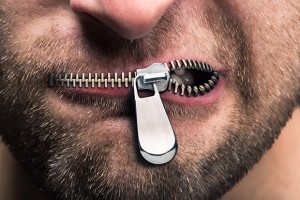
(Photo illustration: Shutterstock)
For the past six months the Index on Censorship Youth Advisory Board has attended monthly online meetings to discuss and debate free speech issues. For their final assignment we asked members to write about the issue they felt passionately about that took place during their time on the board.
Simon Engelkes – Terrorism and the media in Turkey
When three suicide bombers opened fire before blowing themselves up at Istanbul Atatürk airport on 28 June 2016, Turkey’s social media went quiet. While the attacks were raging in the capital’s airport, the government of president Recep Tayyip Erdogan blocked social networks Facebook and Twitter and ordered local media not to report the details of the incident – in which at least 40 people were killed and more than 200 injured – for “security reasons”.
An order by the Turkish prime minister’s office banned sharing visuals of the attacks and any information on the suspects. An Istanbul court later extended the ban to “any written and visual media, digital media outlets, or social media”. Şamil Tayyar, a leading deputy of the ruling Justice and Development Party said: “I wish those who criticise the news ban would die in a similar blast.”
Hurriyet newspaper counted over 150 gag orders by the government between 2010 and 2014. And in March 2015, Turkey’s Constitutional Court approved a law allowing the country’s regulator to ban content to secure the “protection of national security and public order” without a prior court order. Media blackouts are a common government tactic in Turkey, with broadcast bans also put in place after the bombings in Ankara, Istanbul and Suruç.
Emily Wright – The politics of paper and indirect censorship in Venezuela
Soaring inflation, high crime rates, supply shortages and political upheaval all typically make front-page news. Not so in Venezuela, where many newspapers have suspended printing because of a shortage of newsprint.
For over a year now, the socialist government of Nicolás Maduro has centralised all paper imports through the Corporación Maneiro, now in charge of the distribution of newsprint. It is a move the political opposition is calling a form of media censorship, given that many newspapers critical of Chavismo and Maduro’s regime, have been struggling to obtain paper to print news.
In January, 86 newspapers declared a state of emergency, announcing they were out of stock and their capacity to print news was at risk. El Carabobeño, which is critical of the government and Chavismo, stopped circulating in March due to a lack of paper. A year earlier the newspaper had been forced to change its format to a tabloid, and reduce its pages, after running as a standard newspaper since 1933.
Censorship is an long-term problem in Venezuela but it is taking new, covert forms under Hugo Chávez’s successor, Nicolás Maduro. Media outlets are being economically strangled through tight regulation. On top of this huge fines for spurious charges of defamation or indecency linked to articles have become commonplace. Correo del Coroni, the most important newspaper in the south of the country, went bankrupt in this fashion. In March it was fined a million dollars and its director sentenced to four years in jail for defamation against a Venezuelan businessman. A month earlier it was forced to print only at weekends after being systematically denied newsprint.
Under Maduro’s regime, censorship in Venezuela has gone from piecemeal to systemic and the public’s right to information has been lost in the mix. Unable to mask the country’s hard realities with populist promises like his predecessor did, Maduro has been cracking down on the media instead.
Reporters Without Borders recently rated the press in Venezuela as being among the least free in the world, ranking it 139 out of 180 countries, below Afghanistan and Zimbabwe. Freedom House recently rated the press in Venezuela as Not free.
Mark Crawford – The UK government’s anti-BDS policy
In February this year, the British government banned public boycotts of Israeli goods. In recent years, the Boycott, Divestment and Sanctions campaign has become popular among those in opposition to the oppression of the Palestinian people, whereby Israeli goods, services and individuals are evaded or censored.
It’s illogical to punish an entire nation, as BDS does, for the actions of those in power. The answer to this illiberal policy must not be, however, to hand greater power to faceless, bureaucratic law enforcement to suppress freedom of expression.
As a result of the government’s clampdown, the board of trustees at my students’ union, UCLU, has already overridden a pro-BDS position democratically endorsed – however poorly – by its Union Council; but as well as emboldening the very illiberal voices that thrive on the aloof vilification of bureaucrats, the board even elected to censor council’s harmless and necessary expressions of solidarity with the Palestinian people.
The cure for faulty ideas and tactics is better ideas and better politics – translated through debate and honest self-reflection. Not only have legal shortcuts never worked, but they’re ideologically hypocritical and politically suicidal.
Ian Morse – Twitter’s safety council
Twitter unveiled its safety council in February. Its purpose is to ensure that people can continue to “express themselves freely and safely” on Twitter, yet there are no free speech organisations included.
So while the group ostensibly wants to create safety, its manifesto and practice suggest otherwise. The group doesn’t stop incitements of violence, it stops offensive speech. Safety only refers to the same attempts to create “safe spaces” that have appeared in so many other places. There is a difference between stopping the promotion of violence within a group – as Twitter did with 125,000 terrorism-related accounts – and stopping people from hearing other people’s views. Twitter has a mute and block button, but has also resorted to “shadow banning”.
Now compound this with the contradiction that is Twitter’s submission to authoritarian governments’ demands to take down content and accounts in places where not even newspapers can be a forum for free information, such as Russia and Turkey.
It’s indicative of two wider trends: the consolidation of “speech management” in Silicon Valley, and the calamitous division of the liberal left into those who allow the other side to speak and those who do not.
Layli Foroudi – Denied the freedom to connect: censorship online in Russia
The United Nations Human Rights Commission has brought the human rights framework into the digital age with the passing of a resolution for the “promotion, protection, and enjoyment of human rights on the internet”, particularly freedom of expression.
Russia opposed the resolution. This is unsurprising as the government institutionalises censorship in legislation, using extremism, morality and state security as justifications. Since November 2012, the media regulatory body Roskomnadzor has maintained an internet blacklist. Over 30,000 online resources were listed in April, plus 600,000 websites that are inaccessible due to being located on the same IP address as sites with “illegal” information.
This year, the internet in Russia has experienced increased censorship and site filtering under the influence of Konstantin Malofeev whose censorship lobbying group, the Safe Internet League, has been pushing for stricter standards in the name of Christian Orthodox morality, freedom from extremism and American influence.
Activists in Russia have claimed that their messages, sent using encrypted chat service Telegram, have been hacked by Russian security forces. Surveillance was what originally drove Pavel Durov, founder of Telegram and social network VKontakte, to set up the encrypted service as he and his colleagues felt the need to correspond without the Russian security services “breathing down their necks”. Durov himself lives in the US, a move prompted by the forced sale of VKontakte to companies closely aligned with the Kremlin, after the social network reportedly facilitated the 2011 protests against the rigging of parliamentary elections. His departure confirms theories about the chilling effect that crackdowns on expression can have on innovation and technology in a country.
In June a new law was passed which requires news aggregators, surpassing one million users daily, to check the “truthfulness” of information shared. Ekaterina Fadeeva, a spokesperson for Yandex, the biggest search engine in Russia, said that Yandex News would not be able to exist under such conditions.
Madeleine Stone – The murder of Joe Cox
The brutal daylight murder of Yorkshire MP Jo Cox may not initially seem like a freedom of speech issue.
Approached outside her constituency surgery on 16 June 16, at the height of the polarising Brexit debate, Cox was stabbed to death by a man who shouted “Put Britain first” as he attacked her. Cox was an ardent supporter of Britain remaining a member of the European Union, flying a “Stronger In” flag as she sailed down the Thames with her family in a dingy the day before her murder. Her passionate campaigning over the referendum should not have been life threatening.
In Britain, we imagine political assassinations to take place in more volatile nations. We are often complacent that our right to free speech in the UK is guaranteed. But whilst there are people intimidating, attacking and murdering others for expressing, campaigning on and fighting for their beliefs, this right is not safe. For democracy to work, people need to believe that they are free to fight for what they believe is right, no matter where they fall on the political spectrum. Jo Cox’s murder, which for the most part has been forgotten by British media, should be a wake-up call to Britain that our freedom of speech cannot be taken for granted.
08 Aug 16 | Events, mobile
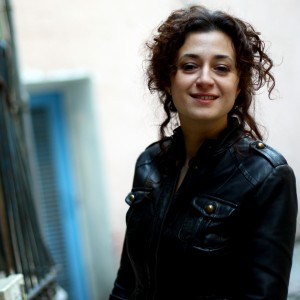
Award-winning Turkish writer Ece Temelkuran will discuss her latest release at Waterstones Trafalgar Square on 20 September
Join Index on Censorship’s CEO Jodie Ginsberg as she presents an evening with award-winning journalist and novelist Ece Temelkuran to discuss her latest book Turkey: The Insane and the Melancholy.
Temelkuran will talk about how her beloved home country’s struggles and tragedies have shaped Turkey and how taking on the AKP government caused her to lose her job as a journalist. She also sees hope in the Gezi Park protests of 2013, the HDP party’s 2015 electoral breakthrough and in the kindness of the country’s ordinary people. Also featuring the Middle East correspondent for the Independent, Patrick Cockburn.
When: Tuesday 20 September, 7pm
Where: Waterstones, Trafalgar Square (map)
Tickets: £2 from Waterstones. And also available in-store or via telephone 0207 839 4411
08 Aug 16 | Events, mobile
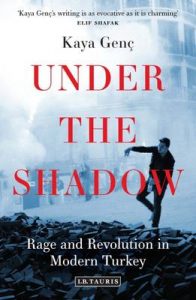
Turkish writers Kaya Genç and Ece Temelkuran will join Daniel Trilling to discuss the state of Turkey
Join Index on Censorship magazine’s contributing editor Kaya Genç and fellow Turkish writer Ece Temelkuran for a discussion about the state of Turkey in the aftermath of the failed military coup.
Editor of the New Humanist, and author of Bloody Nasty People: The Rise of Britain’s Far Right, Daniel Trilling will chair the discussion about the past present, and future of Turkey at the London Review Bookshop on 15 September.
Genç’s Under the Shadow: Rage and Revolution in Modern Turkey is newly published by I.B. Tauris and Temelkuran’s Turkey: The Insane and the Melancholy was recently published by Zed Books.
When: Thursday 15 September, 7pm
Where: London Review Bookshop (map)
Tickets: £10 from the London Review Bookshop
06 Aug 16 | Europe and Central Asia, mobile, News and features, Turkey, Turkey Uncensored

Bülent Korucu, former columnist for Zaman and former editor-in-chief of Aksiyon.
As I’ve been writing for months now, the job that runs the highest risk in Turkey is, without a shred of doubt, journalism.
So you can imagine my sense of bitterness when I woke yesterday to the unanswered cries of despair from a teenage boy trying to save his mother from unlawful imprisonment.
“I am the son of journalist Bülent Korucu,” Tarık Korucu tweeted on 2 August. “Since my father is not found, my mother has been taken hostage for six days now. Please, I beg you, do not stay silent on this unlawful act.”
Hacer Korucu, who is the mother of five children, was taken into police custody on 31 July when the Korucu family flat was raided. The search was part of the crackdown on 42 journalists, many of whom were affiliated with Zaman daily. Bülent was on the list. His current whereabouts are unknown.
Earlier, Tarık tweeted that the police refused to allow his mother to take her one-year-old baby with her. They told his elder brother: “We will narrow the circle around you until your father comes out, and you will be next.”
Tarık’s despair, which was heartwrenching, reached a new low yesterday. He sent out “help us, speak out for us!” messages to a number of parliamentary deputies and journalists like Can Dündar. Only one deputy, Mahmut Tanal from the main opposition, CHP, reacted. Large chunks of the Turkish media are too busy these days attacking their colleagues and outlets in the West. Many Turkish columnists are joining the government chorus which demonises those in the media who are supposed to be Gülen affiliated, while ignoring the Korucu family’s plight in a mood of revenge.
Only brave, independent news sites like Diken, T24 and the Platform for Independent Journalism that reported the case. The rest maintain a deadly, acrimonious silence.
Yesterday, Korucu’s children were told they could go and visit their mother if they could find a lawyer in the ultra-conservative eastern city of Erzurum. This was impossible. “We can not find a lawyer for my mom,” Tarık tweeted. “Unfortunately, lawyers are done for as the rule of law collapsed over here. There isn’t a lawyer with a conscience in this big city.”
I am left speechless. And we still don’t know the grounds on which Hacer is kept in custody.
As of Friday, 42 journalists have been detained since the coup attempt. This brings the total number of jailed journalists in Turkey up 77, possibly the highest number of any country in the world.
In addition, we learned yesterday of two Kurdish reporters arrested in Yüksekova, in Hakkari province.
Korucu family’s tragedy is only a small part of an immense drama, leaving me in no doubt that journalism is the riskiest profession in Turkey.
According to European Journalism Observatory: “More than 100 Turkish media outlets have been closed, their assets seized by the government. Critical newspapers including Yarina Bakış, Özgür Düşünce, Meydan and Taraf, as well as the news site Haberdar and pro-Kurdish news agency DİHA have ceased publishing.”
A key aspect in this updated data has escaped the attention of my Western colleagues. An endless stream of seizures and the demonisation of the media mean that hundreds of journalists who do not end up in jail find themselves out in the streets, marked as “toxic” simply because they are abiding by the principle of remaining critical of power structures. Many will never again find a job in parts of the “central” media, which has been invaded by the culture of self-censorship.
Many of us journalists have lost outlets we’ve worked and are left without income. Many are doomed to either starvation or obedience to the powers that be. We have no chance of being employed in decent conditions unless a miracle happens or we receive mercy from our freedom-hating rulers. This is the real tragedy that has swooped over journalism in Turkey.
A version of this article originally appeared on Suddeutsche Zeitung. It is posted here with the permission of the author.
More Turkey Uncensored
Six more journalists jailed in Turkey
Silence is the enemy of democracy
Tough times ahead for Turkey
Dunja Mijatović : Turkey must treat media freedom for what it really is – a test of democracy
Turkey rounding up reporters, editors and columnists
Turkey’s rising censorship: How did we get here?
Erdogan is ruling Turkey by decree
The largest clampdown in modern Turkey’s history
Escalation in the clampdown on Turkey’s media and academia
Mapping Media Freedom: A disastrous week for Turkish journalism
As the purge deepens in Turkey, is a self-coup underway?
Critical Turkish media is cracking under pressure
A noble profession has turned into a curse
“Judicial coup” sends clear warning to Turkey’s remaining independent journalists
Can Dündar: Turkey is “the biggest prison for journalists in the world”
Turkey’s film festivals face a narrowing space for expression
04 Aug 16 | Europe and Central Asia, News and features, Turkey, Turkey Uncensored
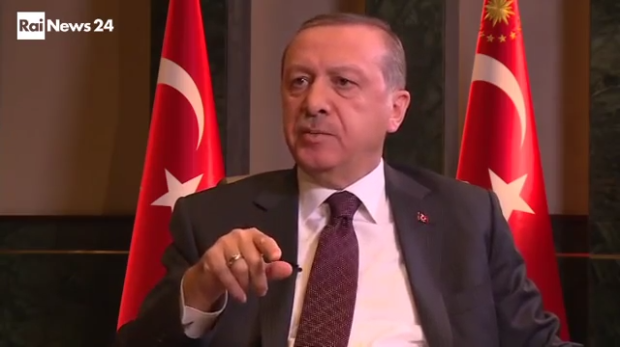
Turkish president Recep Tayyip Erdogan interviewed on Italy’s RAI News 24
Turkey’s third post-coup week has been full of uncertainties, suspicion and concern. As of Wednesday morning there were 1,297 individuals subject to an international travel ban, among them 35 journalists and 51 lawyers.
A developing rift between Ankara and Rome illustrates what Turks can expect from the government-controlled and -aligned media: a moulding of the truth to fit the words and agenda of the country’s president.
In a combative interview with Italy’s RAI News 24, president Recep Tayyip Erdogan challenged the Italian government’s investigation of his son Bilal. He warned that the incident would put Turkey’s relations with Italy “in difficulty”.
“If my son had entered Italy, he would perhaps be arrested. What is this? My son, who is a bright man, is accused of money laundering. Instead of hassling my son, Italy should deal with its own mafia,” he said angrily.
His anger spilled over to the city of Bologna as well. “In that city they call me a dictator,” Erdogan said. “They organise pro-PKK demonstrations. Why don’t they [Italian authorities] step in? This issue will jeopardise our relations with Italy.”
Later, Italy’s prime minister, Matteo Renzi, responded on Twitter: ”In this country the judges respond to the laws and the Italian constitution, not the Turkish president. It’s called ‘rule of law.'”
It’s unnerving how this not-so-diplomatic sparring played out in the Turkish press. While Erdogan’s words were widely quoted on TV channels, the Italian prime minister’s reaction was missing. As media-monitoring organisations pointed out, half of reality was missing, self-censored by subservient outlets under the president’s thumb.
Erol Önderoğlu, Reporters Without Borders’ Turkey representative, asked via Twitter whether or not Turkish TV channels would consider reporting Renzi’s “rule of law” comments. Sadly, he knew they wouldn’t.
It goes further, though. As if self-censorship wasn’t enough, the government moved to block access to articles about the money laundering allegations against Bilal Erdogan following the RAI interview. Cumhuriyet — one of the handful of independent media outlets remaining — reported that Diken and Gazeteport — already under the eye of the government — were sites that had their coverage censored.
At the same time, behind the smokescreen of a subservient press, the Erdogan administration has turned its oppressive measures on Kurdish journalists. Police in the Karayazı District of Erzurum Province detained Mehmet Arslan, a reporter for Dicle News Agency (DİHA). Turkish telecommunications regulator, TIB, blocked access to the website of JİNHA news agency, which mainly covers Kurdish issues.
Journalists on social media were warning authorities that there was a high risk that a journalist in detention, Haşim Söylemez, who recently had two successive brain surgeries, could face health issues in jail.
A colleague of his, briefly arrested with Söylemez, tweeted that “he had a hard time even standing up in the cell”.
Önderoğlu is as deeply concerned as I am about the coming weeks. He said in next four months at least 149 journalists will be facing courts and, due to emergency rule practices, there will be many legal inquiries underway about the others, mainly based on the Anti-Terror Law and the Criminal Code.

Turkey Uncensored is an Index on Censorship project to publish a series of articles from censored Turkish writers, artists and translators.
03 Aug 16 | Mapping Media Freedom, mobile, Netherlands, News and features, Turkey
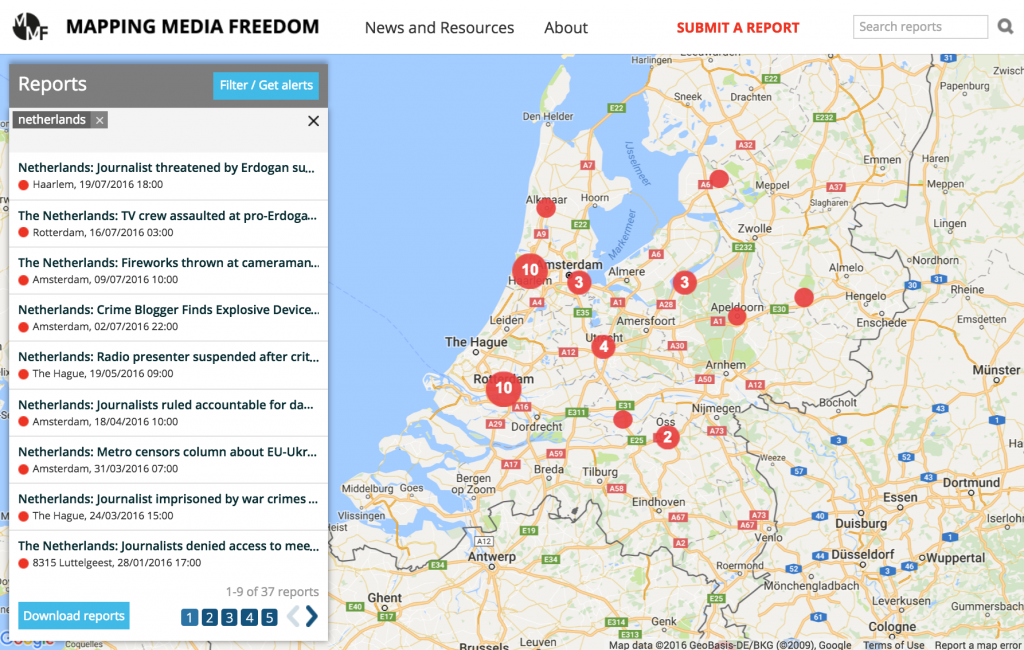
Following last month’s failed coup, journalists in Turkey are facing the largest clampdown in its modern history. Journalists covering the events from abroad have not escaped unscathed, including a number in the Netherlands who have faced threats and attacks.
Unusually, the journalists of the Rotterdam-based Turkish newspaper Zaman Today welcomed the increased police presence. Long before the military coup that failed to remove Turkish president Recep Tayyip Erdogan from power, the government had been targeting journalists. But today a Dutch police officer drops by frequently to check if Zaman’s journalists are alright. It makes journalist Huseyin Atasever, who has been working for the Dutch Zaman since 2014, feel safe. Or at least safer than he has felt in a while.
On the morning of Tuesday 19 July Atasever was on his way to Amsterdam when he received a phone call. A Turkish-Dutch individual had been abused by Erdogan supporters at a mosque in the city of Haarlem. Atasever decided to go there immediately.
“I found a man sitting in a corner on the floor talking to the police,” he told Index on Censorship. “He was injured and his clothes were torn.”
After Atesaver had interviewed the victim, who had been targeted for being critical of Erdogan, he approached a group of Erdogan supporters nearby to hear their side of the story.
“When these men realised that I work for Zaman Today, things got grim,” Atasever said. “A few of them surrounded me and started shouting death threats at me. They told me ‘we will kill you, you are dead’.”
“Thanks to immediate police intervention I managed to get away unhurt,” he added.
More than ever before, Turks all over the world have seen their diaspora communities divided between supporters and critics of Erdogan.
At around half a million people, the Netherlands has one of the largest Turkish communities in Europe. In the days after the coup, thousands of Dutch Turks took to the streets in several cities to show their support for the Turkish president. Turks critical of the Erdogan government had told media that they’re afraid to express their opinions due to rising tensions.
People suspected of being supporters of the opposition Gulen movement, led by Erdogan’s US-based opponent and preacher Fethullah Gulen, which has been accused of being behind the coup attempt, have been threatened and physically assaulted in the streets. The mayor of Rotterdam, a city with a large Turkish community, urged Dutch-Turks to remain calm and ordered increased police protection of Gulen-aligned Turkish institutions.
The men who had threatened Atasever were arrested, but released shortly afterwards. Atasever said he has pressed charges against them. He still receives threats on social media every day: he has been called a traitor, a terrorist and a coup supporter on Twitter. His photo and contact details have been shared on several social network sites accompanied by messages like “he should be hanged” and “let’s go find him”.
On 1 August Zaman Today’s Dutch website was hit by a DDoS attack and knocked offline for about an hour. An Erdogan supporter reportedly had announced an attack on the website earlier via Facebook, and Zaman Today announced it will be pressing charges.
It hasn’t just been journalists of Turkish descent who have been attacked. During a pro-Erdogan demonstration at the Turkish Consulate in Rotterdam, a TV crew for the Dutch national broadcaster NOS was verbally harassed by a group of youth. NOS reporter Robert Bas told the network that his cameraman had been assaulted and their car was also damaged. “There’s a very strong anti-western media atmosphere here,” Bas said in a live TV interview at the scene.
The Dutch Union for Journalists (NVJ) is worried about growing intimidation of journalists in the Netherlands, NVJ chairman Rene Roodheuvel said in Dutch daily Trouw. “The political tensions at the moment in Turkey and the attitude towards journalists there may in no circumstance be imported into the Netherlands,” he said. “We are second in the world when it comes to press freedom. Media freedom is a great good in the Dutch democracy and it must always be respected.”
“AKP supporters believe that media, especially in the west, are part of an international conspiracy to overthrow Erdogan,” Atasever said. Being a journalist for Zaman Today, he is not new to receiving threats. Many Turks feel the Western media is “the enemy”, he explained. “But we are even worse because we are of Turkish descent. They see us as traitors of our country.”
The government took control of the Turkish edition of Zaman in March 2016. Zaman was a widely distributed opposition newspaper, and very critical of the Erdogan government. The paper had ties with Gulen, who has denied any involvement in the coup attempt, but the Turkish government accuses him a running a parallel government. Zaman and its English-language edition, Today’s Zaman, have since been turned into a pro-government mouthpiece.
Most of Zaman’s foreign editions, however, have so far avoided government control. Zaman has editions in different languages around the world. The Dutch edition, Zaman Vandaag, with a circulation of 5,000, has managed to keep its editorial independence.
While independent journalists in Turkey are being arrested one by one, journalists of Turkish descent in the Netherlands are starting to worry too. “I know for a fact that our names have been given to the Turkish government by Dutch AKP supporters, labelling us as traitors and enemies of the state,” said Atasever, who has no plans to travel to Turkey.
“If our names are on a wanted list, which I expect they are, we will be arrested as soon as we set foot in Turkey.”
02 Aug 16 | Croatia, Europe and Central Asia, Mapping Media Freedom, mobile, News and features
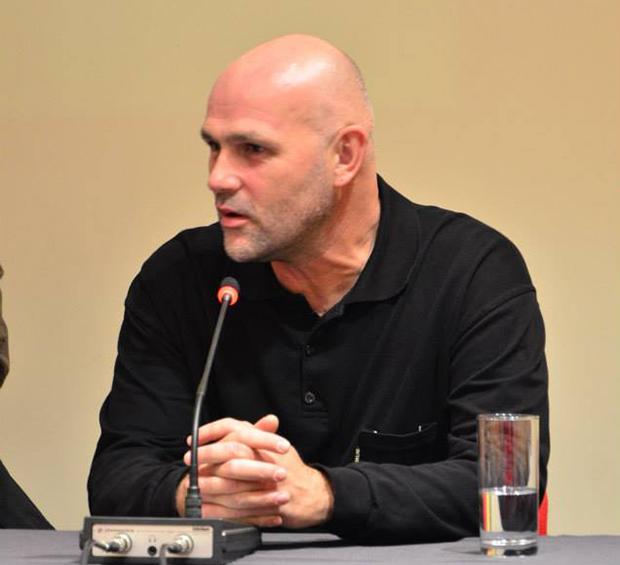
Sasa Lekovic, seen here at a Mediacentar Sarajevo event in 2013, spoke to Mapping Media Freedom about the changes at Croatia’s public broadcaster, HRT. (Photo: Mediacentar Sarajevo)
The cancellation of three radio programmes on 4 July by Croatia’s public broadcaster marks the latest in a line of sweeping changes the network has undergone since January 2016.
Two of the three shows — Audio.doc and Hidden Side of the Day — were produced by award-winning radio journalist Ljubica Letinic, while the third — Morning at Third — was considered to the Croatian Radio-Television’s (HRT) most popular. N1, a regional broadcaster, reported that the programmes will be replaced with new shows that are more appropriate to the ruling elite’s ideology, including one on Christian spirituality.
The changes at HRT have gathered momentum since Croatia’s new conservative government came to power in January 2016. More than 70 media workers at HRT have been demoted or fired and more than 10 TV and radio shows have been terminated, according to the Croatian Journalists’ Association, which has strongly condemned what it calls the deliberate destruction of HRT.
In a written response to the cancellations, CJA president Sasa Lekovic said Croatia’s minister of culture Zlatko Hasanbegovic is the force behind the “culturecide” at HRT and that the changes are motivated by the ideological differences between the conservative government and the liberal subdivisions at the public broadcaster.
In an interview with Mapping Media Freedom, Lekovic said that the purges at HRT were pre-announced, even before the conservative coalition government came to power.
“The latest developments were already announced,” Lekovic said, referring to two interviews. The first with the former Prime Minister Tomislav Karamarko from 2015, and the second with Hasanbegovic from 2013.
“Karamarko in his last year’s interview for weekly Globus announced how citizens, and especially journalist, will need to behave once he comes in power,” Lekovic said. After this it was reasonable to expect that Hasanbegovic will be in charge for media, especially after his statement that the public broadcaster’s channels are being used to enact a “post-modern, neo-Yugoslav deconstruction of Croatian national and cultural identity”.
The Croatian Writers’ Society (HDP) have also condemned the recent trend of deep and substantial changes in the public broadcaster accusing the actual government of “silencing critical voices”. Lekovic told Index on Censorship that the public broadcaster was totally devastated during Karamarko and Hasanbegovic’s brief tenure.
The coalition government between conservative center-right Croatian Democratic Union (HDZ) and the center party Most, a political platform comprised of independent local majors, was formed after more than two months of hard and erratic negotiations. By its nature it was an unstable and shaky coalition. Hasanbegovic as a high-ranking member of HDZ shortly after seated in the chair of the minister of culture. Immediately he became publicly known for series of scandals related to ideological and historical revisionism. One of the biggest scandals was revealed by the Croatian daily Novosti. They published an article that was written by Hasanbegovic during his student days in which he expressed sympathy for the fascist Ustasha regime in World War II Croatia.
After months of turbulence and scandals Karamarko resigned from the leader position at HDZ in June amid a corruption scandal that involved his wife. But briefly before his resignation, as a part of the intergovernmental power games, Karamarko and his party HDZ, which was the main party in the coalition, opted for a no-confidence vote for the government. The end result was Karamarko’s resignation from his position as the leader of the main ruling party, the failure of the coalition between HDZ and Most and snap elections were called for 11 September.
Despite the fact that the government lost the confidence vote, the changes at HRT continue as the broadcaster is under HDZ influence. In March, while still in power, the centre-right government installed Sinisa Kovacic, then-head of the parallel journalist association HNIP, as an acting head of HRT. Since then he has continued to implement Hasanbegovic’s vison for HRT and to reshape the broadcaster’s programmes. Since Kovacic was supposed to be in that position for maximum six months, a period that is long overdue, negotiations on his successor are underway.
Letinic said she is skeptical about the future of Croatian journalism. “It doesn’t look good, both for journalism and journalists. The paradox is that even such journalism serves this country. It was the weekly Nacional that provoked the fall of HDZ-MOST government.”
02 Aug 16 | About Index, Index Reports, Press Releases
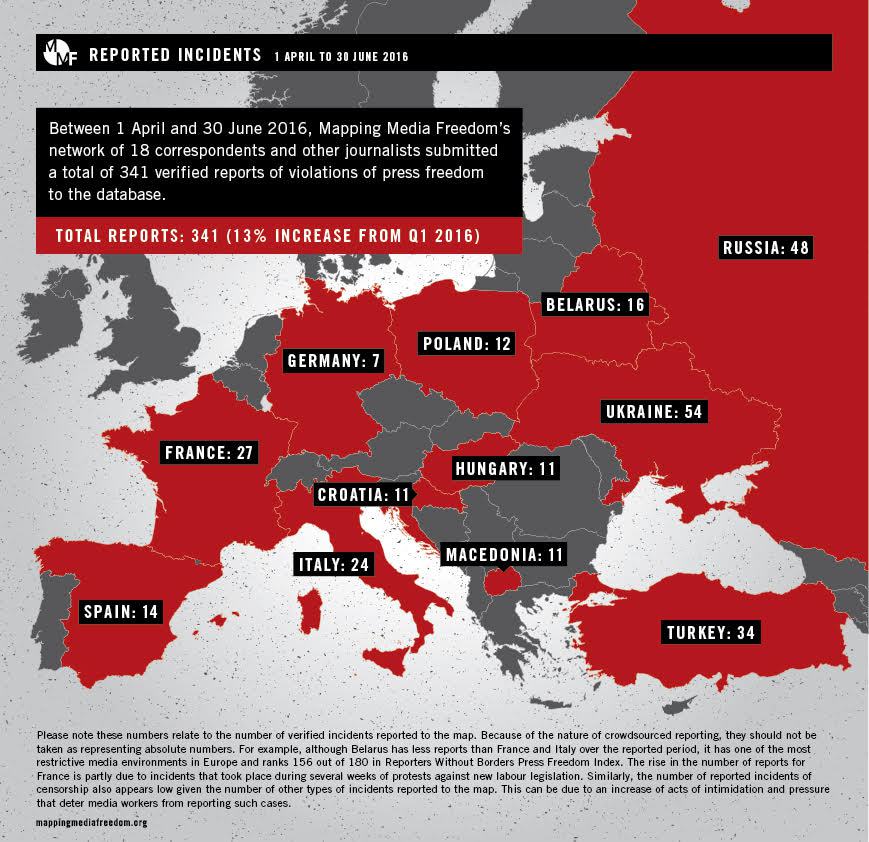
Violence against journalists in Europe increased in the second quarter of 2016, reports submitted to Index on Censorship’s Mapping Media Freedom platform show, as a government crackdown in Turkey intensified and protests turned violent in countries from France to Finland.
“Europe is considered one of the safest places for journalists in the world. However, increasing concerns about national security in the region – coupled with creeping authoritarianism – is making it an increasingly difficult place for the media to operate freely and safely,” said Hannah Machlin, project officer for Mapping Media Freedom. “And the threats are not just coming from the usual suspects: 12 incidents of injuries to journalists occurred in France and in a number of these cases journalists appear to have been directly targeted by police.”
Between 1 April and 30 June 2016, Mapping Media Freedom’s network of 18 correspondents and other journalists submitted a total of 341 violations of press freedom to the database, a 13% rise over the first quarter of 2016.
Key findings from the Q2 report
- Two journalists were killed. Mohammed Zahir al-Shergat died as a result of gunshot wounds in the city of Gaziantep, Turkey; journalist and radio host Luka Popov from northern Serbia was found dead in his home in Srpski Krstur
- 60 incidents of physical assault were confirmed
- 45 criminal charges and civil lawsuits were filed
- Media professionals were detained in 41 incidents
- 80 verified reports of intimidation, which includes psychological abuse, sexual harassment, trolling/cyberbullying and defamation were recorded
- Work was censored or altered 15 times
- Media professionals were blocked from covering a story in 73 incidents
“The fight for the abolition of prison sentences for offences committed through the press is unfortunately still relevant in Europe and neighboring countries,” Christophe Deloire, Reporters Without Borders secretary general said. “In a climate of growing fear and suspicion, judicial persecution of journalists takes more and more diversified forms. The Turkish authorities continue to invoke the anti-terrorism law, the protection of state secrets or insults to the head of state to prosecute and imprison more journalists.”
“Journalists are beaten, intimidated, imprisoned and killed in the pursuit of telling a story, exposing the truth and informing the public. These courageous men and women are the vanguard for free speech, freedom of expression and, ultimately, a free and democratic society. We need to come together and fight for journalists’ safety and end impunity for crimes committed against journalists,” said Dunja Mijatović, the OSCE Representative on Freedom of the Media.
The report is available now at https://mappingmediafreedom.org/plus/ or as a PDF.
For more information, please contact Hannah Machlin, Mapping Media Freedom project officer at hannah@indexoncensorship.org
About Mapping Media Freedom
Mapping Media Freedom – a joint undertaking with the European Federation of Journalists and Reporters Without Borders and partially funded by the European Commission – covers 42 countries with a network of correspondents, including all EU member states, plus Albania, Azerbaijan, Belarus, Bosnia, Iceland, Kosovo, Macedonia, Montenegro, Norway, Russia, Serbia, Turkey, Ukraine and Vatican City. In September 2015 the platform expanded to monitor Russia, Ukraine and Belarus and in February 2016 into Azerbaijan. Each report is fact checked with local sources before becoming available on the interactive map. Since launching in May 2014, the map has recorded over 2,000 incidents threatening media freedom.
01 Aug 16 | Europe and Central Asia, Mapping Media Freedom, mobile, News and features, Turkey, Turkey Uncensored
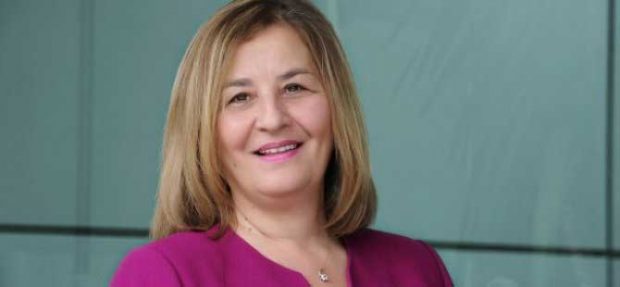
Turkish journalist Lale Kemal
It was a long Saturday night for all of us, at home and abroad, monitoring the worrisome developments around media freedom in Turkey. As if to confirm our fears, the night ended with the detention of six more journalists.
Defence lawyers expected the cases to be handled first thing Monday 1 August. But in a hasty move, journalists who wrote for the opinion section of Zaman — which stands at the epicentre of accusations of being part of the so-called “media leg of FETO terror organisation” — were taken to the Istanbul courthouse. After a long process, all were sent to jail.
The ruling, written under the extraordinary circumstances of emergency rule, reads like a severe restriction of the free word in particular and journalism in general.
The motivation for detention went, in a nutshell, that the six “prevented the investigation on the armed structure in their columns and via social media, and continued to write their columns even after the chief editor of Zaman daily, Ekrem Dumanlı, had fled the country”. Sigh.
There was no other mention than their expressed views — without going into any specifics in their content — and it was seen as sufficient by the judge to rule for jailing. Theirs will add to the pile of complaints from Turkey at the European Court of Human Rights.
It was the case of Şahin Alpay in particular which raised concerns among his colleagues in media and academia. One of the top liberal voices in Turkey, and known with respect among others in German social democrat, liberal and green political circles, Alpay is utterly frail with several health issues. The hopes of a release — albeit conditional — were high but crashed.
Yesterday, his family tried to contact him in prison, uncertain of any success.
All the six are from Turkish media’s liberal end of the spectrum. Among them are two female reporters that require attention. Lale Kemal, who was a commentator with Zaman, is an expert journalist on defence issues, with a long career. Her CV begins with Anatolian Agency, going on with Cumhuriyet daily, Hürriyet Daily News, Taraf and Today’s Zaman. She has been a stringer for Jane’s Defence Weekly for a long time.
The other, Nuriye Akman, has been a professional for 25 years. She worked with “mainstream” dailies in the 1990s and marked her reputation with long, Oriana Fallaci-style interviews both in print and TV. She is also the author of three novels.
Both women have been known to earn their keep only through journalism, like the others in this group of detainees.
Ali Bulaç, with a background as a theologue, is an independent voice within the conservative segments, often with disagreements and polemics with some others in the group. Ahmet Turan Alkan is regarded as a senior voice as part of the centre-right liberal flank in Turkey, popular for his ironic style. And Mustafa Ünal, who was Ankara Bureau Chief of Zaman, was for long active in Ankara, covering major political issues with a minimalist, simple writing style.
According to the regular monitoring done in daily basis by Platform for Independent Journalism (P24), these latest detentions mean that since the bloody coup attempt on July 15, 29 journalists are detained. In a total, there are now 62 journalists in jail in Turkey.
During the long, dark hours on Sunday, there was another message that added to the fears. A colleague, Ali Aslan, based in Washington DC, tweeted that the police had detained the wife of a journalist Bülent Korucu, former editor in chief of the weekly news magazine Aksiyon, now under arrest warrant but on the run. The police, Aslan claimed, threatened to keep her locked until her husband surrenders. Korucu’s son also confirmed this claim.
Dark Sunday indeed.
What fuels the concerns is that there is so far no assurance from the government about the respect for media freedom and whether or not the witch hunt will end anytime soon.
A version of this article originally appeared at Suddeutsche Zeitung. It is posted here with the permission of the author.

Turkey Uncensored is an Index on Censorship project to publish a series of articles from censored Turkish writers, artists and translators.
01 Aug 16 | mobile, News and features, Spain
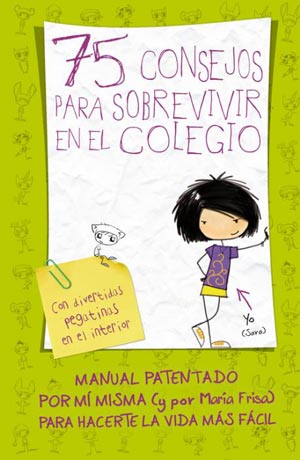 In this guest post, the editor de Letras Libres España explains the uproar over of children’s book.
In this guest post, the editor de Letras Libres España explains the uproar over of children’s book.
More than 30,000 people have signed a petition to have 75 Tips to Survive School (75 Consejos para Sobrevivir en el Colegio) — a book by author María Frisa and published by Alfaguara in 2012 — pulled from the market in Spain.
The petition, hosted on Change.org, accuses the book of giving “toxic advice”, and of inciting sexism, disobedience and bullying. The publishing house said it will not withdraw the book, although the cover will emphasise that it is a work of fiction. The author issued a statement in which she regretted the misunderstanding surrounding her book.
The charge is old and familiar: Frisa is accused of corrupting the young. And the strategy is also old and familiar: intolerance and the literal mind posing as protecting the weak. We tend to think that those who restrict freedom of speech have evil motives. But they almost always act in defence of a noble cause, convinced of their good intentions.
The initial complaint came from @YaraCobaain, a Twitter user, on 23 July, and the petition was launched by Haplo Schaffer, a YouTuber. It was amplified by the media, which often merely repeated the petition’s ideas and points of view, thus distorting the contents of the book and presenting excerpts without explaining the context. It seems reasonable to assume that the vast majority of the signatories have not read the book. When Schaffer wrote the petition, he hadn’t either.
A careful reading of the petition on Change.org could have triggered some alarm: for example, the fact that it describes 75 Tips to Survive School as addressed to girls, as if in Spain books were segregated by gender (the book is not even directed towards a female reader: tip number 22, for example, is “finge ser simpático”, and the adjective “simpático” is in the masculine form). The campaign and some of the press presented the book as if it were a manual. Actually, and very clearly, Frisa’s book, which is part of a series, is a literary work of humorous fiction. The narrator, Sara, is a fictional character. She has irreverent opinions, describes tactics that are not presented as morally exemplary, and concocts plans which often go awry. The book’s tone is naive and childish. A reader might find the joke more or less funny, but it’s clearly a joke.
Regardless of the work’s genre, and though it might seem odd if someone does not like a book or its ideas they can choose not to buy it, and even not to read it. On top of ignoring the characteristics of the object that offends them, the petition’s signatories seem to overestimate the influence of literature on our behaviour and to underestimate the reading comprehension of the young – we can safely expect that it won’t always be as rough or twisted as the campaigners’. If we applied the same standard to every book written for children, or to every work that may fall into a child’s hands, we may have to do without a few, from Tom Sawyer to Matilda. We would probably have to withdraw The Simpsons and Robert Louis Stevenson as they would be considered a peril for the young, and I don’t know what we’d make of the Bible. Literature would lose complexity, richness, humor and the ability to help us understand different viewpoints and behaviours.
Although the campaign has denounced what it says is an incitement to bullying, it has harassed the writer and has intimidated the publishing house. In the book’s page on Amazon, the vast majority of comments were made after 23 July 2016, and they contain the ideas of the petition. Murcia, a region in Spain, has called for the withdrawal of the book. The author has claimed that she has received death threats. When Frisa published her statement, Schaffer, who has later distanced himself from the threats and insults of some campaigners on Twitter and on a commented reading of the novel on YouTube, wrote: “You are disgraceful and a coward, @MFrisa. I have been extremely polite so far, but enough is enough.” He tweeted to the publishing house: “If you want to present a coherent explanation, @Alfaguara_es, you still have time. If not, face the consequences, they won’t be nice.” Interestingly, in the explanations of some of his YouTube videos Schaffer defends the importance of freedom of speech.
In The Art of the Novel, Milan Kundera writes: “The word agélaste: it comes from the Greek and it means a man who does not laugh, who has no sense of humour. Rabelais detested agélastes. He feared them. He complained that the agélastes treated him so atrociously that he nearly stopped writing forever”
In 2016, 30,000 people in Spain have demanded the banning of a children’s book that in most cases they haven’t read. The petition states: “It is intolerable that such content is published, publicised and disseminated.”
Frisa has had the support of her publishing house, as well as some colleagues and members of the literary world. But one of the most striking things about this case is her helplessness before hysterical vigilantes and the stampede of people who have more energy to be indignant than time or desire to be properly informed. It’s partly explained by the dynamics of social networks, which are difficult to stop. But the role of many journalists has also been regrettable. Firstly, their job is to report events as they are, and in this case many have failed to do so. Secondly, those whose living depends on freedom of speech should be wary of this kind of phenomenon: armed with the best intentions, one day they might also come to shut you up.
A version of this article originally appeared in Letras Libres.
01 Aug 16 | Bahrain, Middle East and North Africa, mobile, News and features

Bahraini human rights defender Nabeel Rajab (Photo: The Bahrain Institute for Rights and Democracy)
Nabeel Rajab, the Bahraini human rights activist and Index on Censorship award winner, was due to stand trial on 2 August – now postponed until 5 September – over comments he made on Twitter criticising government institutions. In Bahrain, such comments can land you in jail, as Rajab has seen before, having spent two years behind bars for tweets made in 2012.
Index looks at how Rajab has been treated by the Bahraini authorities over the years.
1994-1996
Rajab became involved in the uprisings in Bahrain of the 1990s to demand democratic reforms within the country.
2000
Rajab co-founded the Bahrain Human Rights Society to strengthen calls for democratic reforms.
2002
Rajab worked with Abdulhadi al-Khawaja and others to found the Bahrain Centre for Human Rights, an NGO to promote human rights in Bahrain.
2005
Rajab suffered a spinal injury, fractured arm, broken finger and head injury after being attacked by Bahraini’s Special Security Force Command while attending a peaceful rally by the Committee for the Unemployed to protest against the government’s management of unemployment levels.
2010
During a government crackdown on dissent in the summer of 2010, Rajab’s photograph was published a number of times in the pro-government publication Al-Watan, accusing him of supporting terrorists and publishing false information. Other publications followed suit.
On 8 September, a warrant for his arrest was issued and he was subject to a travel ban. Just over a week later, these were dropped.
2011
During the 2011 Arab Spring, Bahrain’s monarchy faced serious threats. As a result, even peaceful demonstrators were met with brutal government repression, leaving over 30 dead. Rajab had been a leading voice during the Bahraini uprising, and many associated with him faced a backlash. Even members of CNN’s news team were arrested by the government’s security forces as they visited his house in April. “Twenty men in black ski masks are reported to have surrounded the news team and confiscated their recording equipment,” Index reported at the time.
In June, Rajab was summoned to a military court just hours before Bahrain was due to lift its emergency law, which saw the arrival of Saudi troops in Bahrain to help crush the peaceful protests. Rajab then went missing for several of days.
2012
On 6 January 2012, Rajab was hospitalised being beaten by security forces after leading a protest in Manama and briefly detained. On 12 February he was briefly detained after he tried to march to the location of the Pearl Roundabout in Manama, where government forces cracked down on protesters during the 2011 uprising.

Nabeel Rajab, BCHR – winner of Bindmans Award for Advocacy at the Index Freedom of Expression Awards 2012
In March, the Bahrain Centre for Human Rights won Index on Censorship’s Freedom of Expression Award for advocacy, which recognises campaigners who fight repression.
In April, Bahrain hosted the annual Formula One Grand Prix. Following the negative media coverage around the event, Bahraini authorities stepped up their suppression of the country’s protest movement. During this time, Rajab was arrested and released several times.
On 5 May, Rajab was arrested at Bahrain International Airport on his arrival from Lebanon the day before the scheduled court hearing relating to a protest he had attended in March. The following day, he was charged with “insulting a statutory body of Twitter”. He was released on 28 May but re-arrested on 7 June, and in July was sentenced to three months in prison for allegedly defamatory tweets.
On 16 August he was sentenced to three years in prison for charges related to “illegal gathering”. Between 2012 and 2014, Rajab spent two years behind bars.
2014
In October 2014, a court ruled that Rajab would face criminal charges stemming from a single tweet in which both the ministry of interior and the ministry of defence allege that he “denigrated government institutions”. Rajab faced up to six years in prison.
He was due to stand trial on 19 October. It was adjourned until 29 November and he was denied bail. In November it was adjourned again until 20 January 2015 and Rajab was freed without bail.
2015
When Rajab finally stood trial on 20 January, he was sentenced to six months in prison, which was suspended pending a fine. He was granted bail while he appealed the verdict. It wasn’t long before he was summoned by police again, and fresh fears emerged of his arrest. On 26 February, he wrote an email to supporters which read: “Just to inform you that I was summoned today morning to attend the police station at the same time – and I came to know that the new charge against me will incitement of hatred against the regime.” In early April he was arrested, again for comments made online.
While his appeal date was set for 15 March, it was repeatedly postponed.
On 14 July, the Bahraini king pardoned Rajab three months into a six-month sentence for the tweet. According to Bahrain’s official news agency, this was over fears for his health.
2016
Back in January, Rajab was given an arbitrary travel ban. Index, along with other NGOs, called for this ban to be lifted so that he could travel abroad with his family to secure medical assistance for his wife, Sumaya Rajab.
On 13 June, he was taken from his home early in the morning and his electronic devices were seized. The next day, he was charged with “spreading false news” and has been in detention since, awaiting trial. After 15 days in solitary confinement, Rajab was hospitalised in late June.
On 7 July, the European Parliament adopted a resolution condemning recent human rights abuses in Bahrain and called for an end to the ongoing repression against the country’s human rights defenders, political opposition and civil society.
A few days later, a coalition of international NGOs, including Index on Censorship, condemned Bahrain’s treatment of Rajab.
His trial was due to take place on 2 August but has been postponed until 5 September. A tweet by Index, which Rajab shared, is to be used as evidence against him. It reads:
30 Jul 16 | mobile, News and features, Turkey, Turkey Uncensored
“Freedoms suspended” was the headline of Friday’s Cumhuriyet daily. It is one of the very few newspapers left in Turkey which dares to continue with critical reporting and analysis.
Cumhuriyet explained that the emergency rule decrees give the government the ability to arbitrarily shut down media outlets suspected of “having links to structures and groups that pose a threat to national security.” Ministers are now empowered to close TV, radio, websites and, even, book publishers. Prosecutors are required to follow those orders. This means a total end of media freedom in Turkey.
Academics, who had launched a petition calling for an end to the violence in south-eastern Turkey and advocated a return to peace negotiations, have found themselves targets of the wider with hunt, Cumhuriyet reported. Under government decrees, prosecutors are now able to issue search warrants and even seize the properties of suspects being arrested or sought for detention — without the need to have a judge approve the order.
Emergency rule has delivered at least one absurdity. An IVF clinic in Istanbul run by an Armenian doctor was forced to close for being “part of FETO terror organisation”. The doctor fiercely denied the claims, to no avail. “I am a Christian, have absolutely nothing to with Gülen” he told the press. Under the circumstances he has no possibility of appeal.
But the reality of emergency rule was plain to see on Friday as journalists were paraded in front of the cameras, hauled into interrogations. Four prosecutors questioned 21 media professionals — whether investigative reporters like Arda Akın or veteran columnists likeNazlı Ilıcak — accused of being part of the “media leg of terrorist organisation”.
The cases of two detainees — Prof Şahin Alpay, a political scientist and commentator, and Hilmi Yavuz, one of the top figures of Turkish literature — raised concerns to new levels. Both intellectuals need medication, which they were denied, according to their relatives and lawyers.
“A medical report was asked for from the doctors”, explained those close to the poet and literary critique, Hilmi Yavuz. “When we told them he already had prescriptions, we were prevented from handing the medication to him.”
Alpay’s relatives went on Friday morning to the public prosecutor’s office and presented his health reports, demanding a swift interrogation process. Their application was denied. Then, they went to the police headquarters, asking for information about his health. According to a news piece by P24 website, they were told that under no circumstances any explanation would be given. They were taken out of the building.
Turkish and international literature and academic circles must strongly protest these two most sensitive, absurd cases. Yavuz, with his six-decade career, is a “grand old man” of Turkish letters. Alpay has been one of the most consistent and powerful socially liberal voices in Turkey’s academic community. Everyone knows where both of these men stand for freedom and human rights. We owe it to them to raise our collective voices in their defense. But sadder still, neither the Turkish or international arms of PEN — at the time of writing — have spoken out against these arrests.
With the witch hunt has come severe fear among Turkey’s intellectuals suggesting that a disagreement in ideas is a pretext for indifference. Under these conditions, the dissenting and bold journalists, professors and, even, poets are doomed to receive blow after blow.
Silence, in these extraordinary times, is the enemy of democracy.
A version of this article originally appeared at Suddeutsche Zeittung. It is reposted here with the permission of the author.

Turkey Uncensored is an Index on Censorship project to publish a series of articles from censored Turkish writers, artists and translators.












 In this guest post, the editor
In this guest post, the editor 
